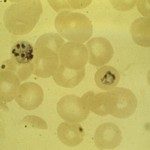Link to Pubmed [PMID] – 38464515
Link to DOI – 10.3389/fimmu.2024.1366530
Front Immunol 2024 ; 15(): 1366530
An estimated 1.5 million Americans suffer from Type I diabetes mellitus, and its incidence is increasing worldwide. Islet allotransplantation offers a treatment, but the availability of deceased human donor pancreases is limited. The transplantation of islets from gene-edited pigs, if successful, would resolve this problem. Pigs are now available in which the expression of the three known xenoantigens against which humans have natural (preformed) antibodies has been deleted, and in which several human ‘protective’ genes have been introduced. The transplantation of neonatal pig islets has some advantages over that of adult pig islets. Transplantation into the portal vein of the recipient results in loss of many islets from the instant blood-mediated inflammatory reaction (IBMIR) and so the search for an alternative site continues. The adaptive immune response can be largely suppressed by an immunosuppressive regimen based on blockade of the CD40/CD154 T cell co-stimulation pathway, whereas conventional therapy (e.g., based on tacrolimus) is less successful. We suggest that, despite the need for effective immunosuppressive therapy, the transplantation of ‘free’ islets will prove more successful than that of encapsulated islets. There are data to suggest that, in the absence of rejection, the function of pig islets, though less efficient than human islets, will be sufficient to maintain normoglycemia in diabetic recipients. Pig islets transplanted into immunosuppressed nonhuman primates have maintained normoglycemia for periods extending more than two years, illustrating the potential of this novel form of therapy.

